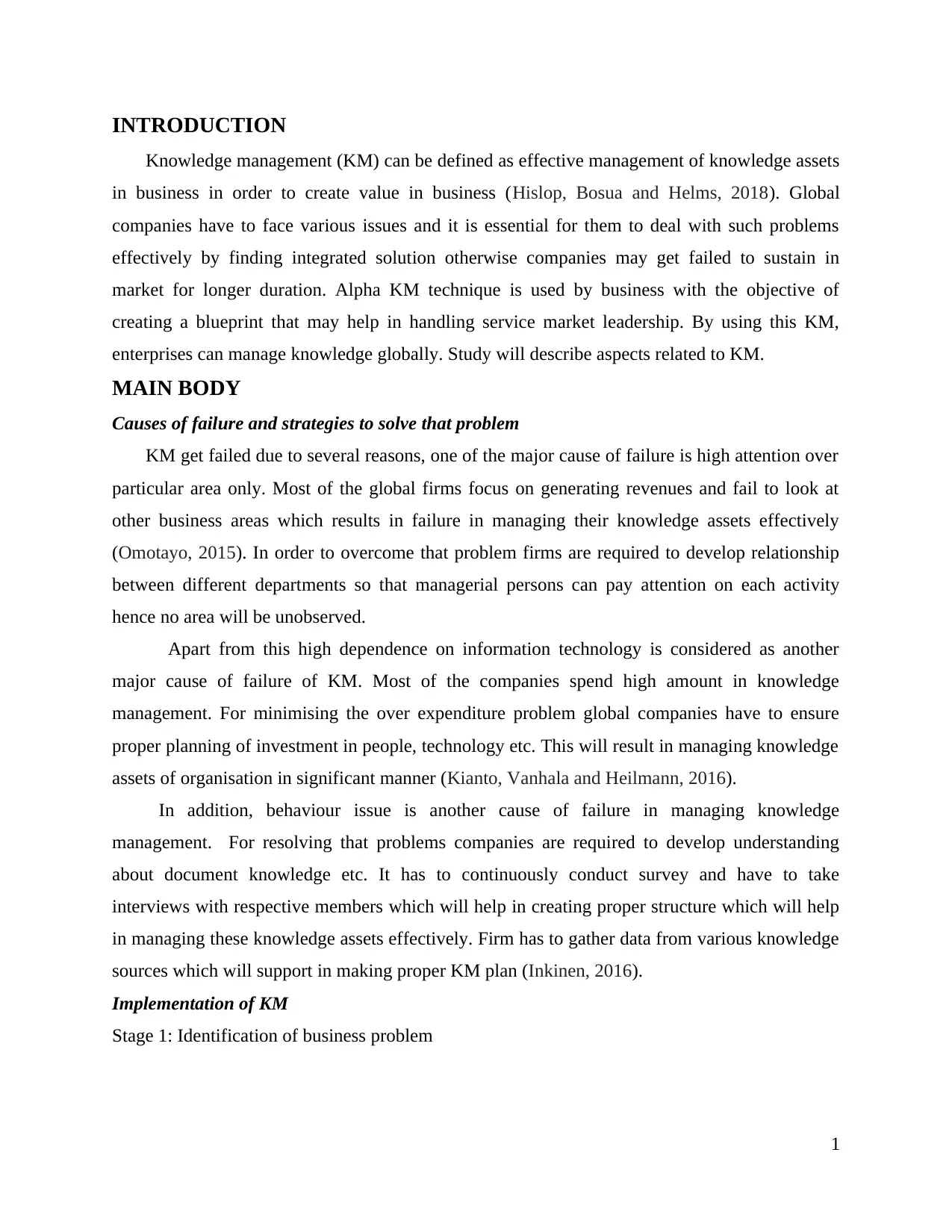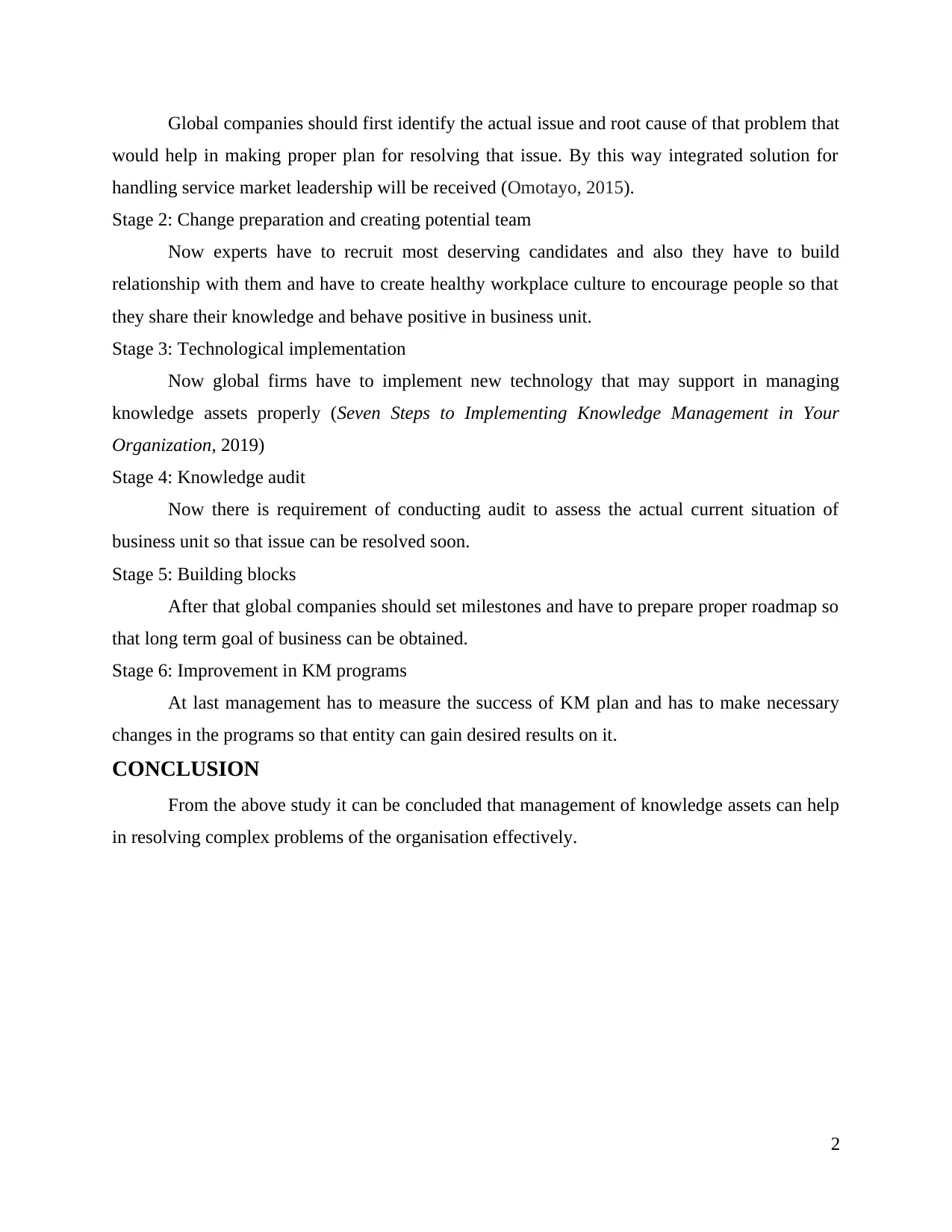Comprehensive Report on Knowledge Management in Global Businesses
VerifiedAdded on 2021/02/19
|5
|795
|175
Report
AI Summary
This report provides a comprehensive analysis of knowledge management (KM) within global businesses. It begins by defining KM and its importance, emphasizing the need for effective knowledge asset management to navigate complex business challenges. The main body of the report explores the causes of KM failure, including over-specialization, over-reliance on technology, and behavioral issues, along with strategies to mitigate these problems. It suggests developing interdepartmental relationships, planning technology investments, and fostering a culture of knowledge sharing. The report then outlines a six-stage implementation process for KM, including problem identification, team building, technological implementation, knowledge auditing, milestone setting, and program improvement. The conclusion reinforces the significance of KM in resolving organizational issues. The report references various books, journals, and online resources to support its findings, providing a solid foundation for understanding KM principles and practices.
1 out of 5












![[object Object]](/_next/static/media/star-bottom.7253800d.svg)